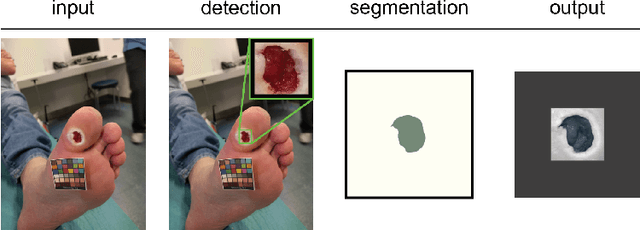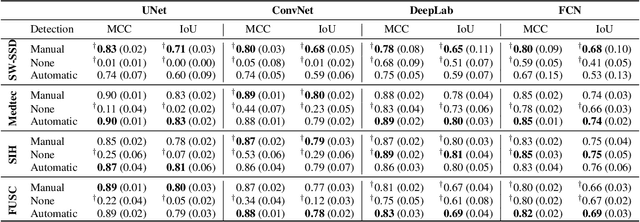Oliver Distler
Semi-Supervised Generative Models for Disease Trajectories: A Case Study on Systemic Sclerosis
Jul 16, 2024Abstract:We propose a deep generative approach using latent temporal processes for modeling and holistically analyzing complex disease trajectories, with a particular focus on Systemic Sclerosis (SSc). We aim to learn temporal latent representations of the underlying generative process that explain the observed patient disease trajectories in an interpretable and comprehensive way. To enhance the interpretability of these latent temporal processes, we develop a semi-supervised approach for disentangling the latent space using established medical knowledge. By combining the generative approach with medical definitions of different characteristics of SSc, we facilitate the discovery of new aspects of the disease. We show that the learned temporal latent processes can be utilized for further data analysis and clinical hypothesis testing, including finding similar patients and clustering SSc patient trajectories into novel sub-types. Moreover, our method enables personalized online monitoring and prediction of multivariate time series with uncertainty quantification.
Modeling Complex Disease Trajectories using Deep Generative Models with Semi-Supervised Latent Processes
Nov 17, 2023



Abstract:In this paper, we propose a deep generative time series approach using latent temporal processes for modeling and holistically analyzing complex disease trajectories. We aim to find meaningful temporal latent representations of an underlying generative process that explain the observed disease trajectories in an interpretable and comprehensive way. To enhance the interpretability of these latent temporal processes, we develop a semi-supervised approach for disentangling the latent space using established medical concepts. By combining the generative approach with medical knowledge, we leverage the ability to discover novel aspects of the disease while integrating medical concepts into the model. We show that the learned temporal latent processes can be utilized for further data analysis and clinical hypothesis testing, including finding similar patients and clustering the disease into new sub-types. Moreover, our method enables personalized online monitoring and prediction of multivariate time series including uncertainty quantification. We demonstrate the effectiveness of our approach in modeling systemic sclerosis, showcasing the potential of our machine learning model to capture complex disease trajectories and acquire new medical knowledge.
Detect-and-Segment: a Deep Learning Approach to Automate Wound Image Segmentation
Nov 02, 2021



Abstract:Chronic wounds significantly impact quality of life. If not properly managed, they can severely deteriorate. Image-based wound analysis could aid in objectively assessing the wound status by quantifying important features that are related to healing. However, the high heterogeneity of the wound types, image background composition, and capturing conditions challenge the robust segmentation of wound images. We present Detect-and-Segment (DS), a deep learning approach to produce wound segmentation maps with high generalization capabilities. In our approach, dedicated deep neural networks detected the wound position, isolated the wound from the uninformative background, and computed the wound segmentation map. We evaluated this approach using one data set with images of diabetic foot ulcers. For further testing, 4 supplemental independent data sets with larger variety of wound types from different body locations were used. The Matthews' correlation coefficient (MCC) improved from 0.29 when computing the segmentation on the full image to 0.85 when combining detection and segmentation in the same approach. When tested on the wound images drawn from the supplemental data sets, the DS approach increased the mean MCC from 0.17 to 0.85. Furthermore, the DS approach enabled the training of segmentation models with up to 90% less training data while maintaining the segmentation performance.
 Add to Chrome
Add to Chrome Add to Firefox
Add to Firefox Add to Edge
Add to Edge